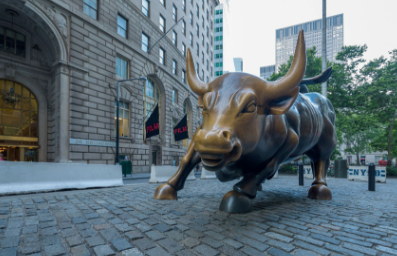The foreign exchange (forex) market is a dynamic and complex global marketplace. At the heart of it all is the broker, an intermediary connecting individual traders to the vast and liquid currency markets. However, the role of the broker is far from static; it’s constantly evolving, driven by technological advancements, increased regulatory oversight, and the changing expectations of traders.

The Rise of the Digital Forex Broker
The internet revolutionized forex trading, giving rise to online forex platforms that provided accessibility and convenience previously unheard of. Today, brokers offer sophisticated trading platforms accessible via desktop, mobile apps, and even web browsers. This accessibility, coupled with readily available forex news and educational resources, has democratized trading, attracting a diverse range of participants.
Technological Innovation: Fueling the Future
Technological innovation is a key driver in the evolution of the modern broker. Cutting-edge platforms now offer advanced charting tools, real-time market data, and algorithmic trading capabilities. Many brokers also provide API access, allowing traders to develop their own custom trading strategies and integrate them directly into the platform. This fosters a more sophisticated and personalized trading experience.
The Power of Social Trading and Copy Trading
The emergence of social trading and copy trading platforms has further reshaped the broker landscape. These platforms allow traders to follow and copy the trades of experienced and successful traders within a community. This can be particularly appealing to novice traders who are still learning the ropes. Intelligent copy trading systems are now sophisticated, allowing traders to choose strategies based on risk tolerance, performance metrics, and other relevant criteria. Brokers are increasingly integrating these features, recognizing the demand for collaborative and knowledge-sharing environments.
Addressing the Core Concerns: Security and Regulation
Security and regulation remain paramount concerns for traders. Reputable brokers are subject to stringent regulatory oversight by recognized authorities, such as the Financial Conduct Authority (FCA) in the UK or the Australian Securities and Investments Commission (ASIC). These regulations are designed to protect traders’ funds and ensure fair and transparent trading practices. Brokers must adhere to strict capital adequacy requirements, segregation of client funds, and transparent reporting standards. Choosing a regulated broker is crucial for ensuring the safety of your investment.
Enhancing the Trading Experience
Modern forex brokers are increasingly focused on enhancing the overall trading experience. This includes offering personalized customer support, comprehensive educational resources, and a user-friendly platform. Competitive spreads, low commissions, and fast execution speeds are also essential factors that contribute to a positive trading environment. Furthermore, brokers are leveraging data analytics to provide traders with insights into their trading behavior, helping them to identify areas for improvement and refine their strategies.
Looking Ahead: The Future of Forex Brokers
The future of forex brokers will likely be shaped by further advancements in technology, including artificial intelligence (AI) and machine learning. AI-powered trading tools could provide traders with predictive analytics, personalized trading recommendations, and automated risk management strategies. The integration of blockchain technology could also enhance transparency and security within the forex market. Ultimately, the brokers that prioritize transparency, security, and innovation will be best positioned to thrive in this dynamic and competitive landscape. The focus will continue to be on providing a seamless, secure, and empowering trading experience for all participants in the forex trading ecosystem.
